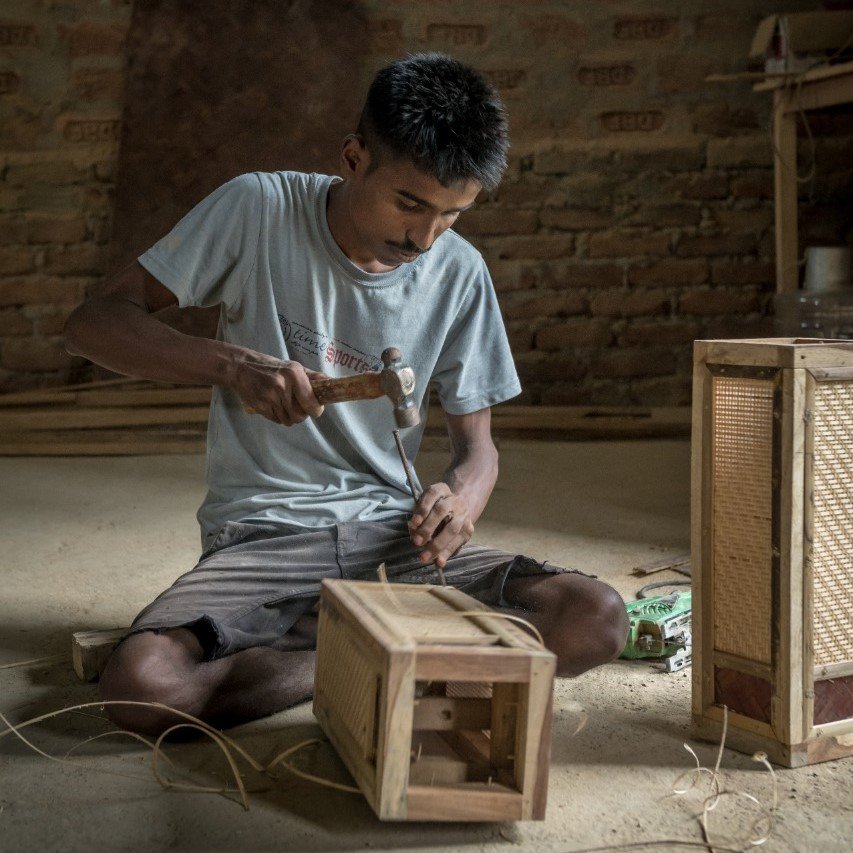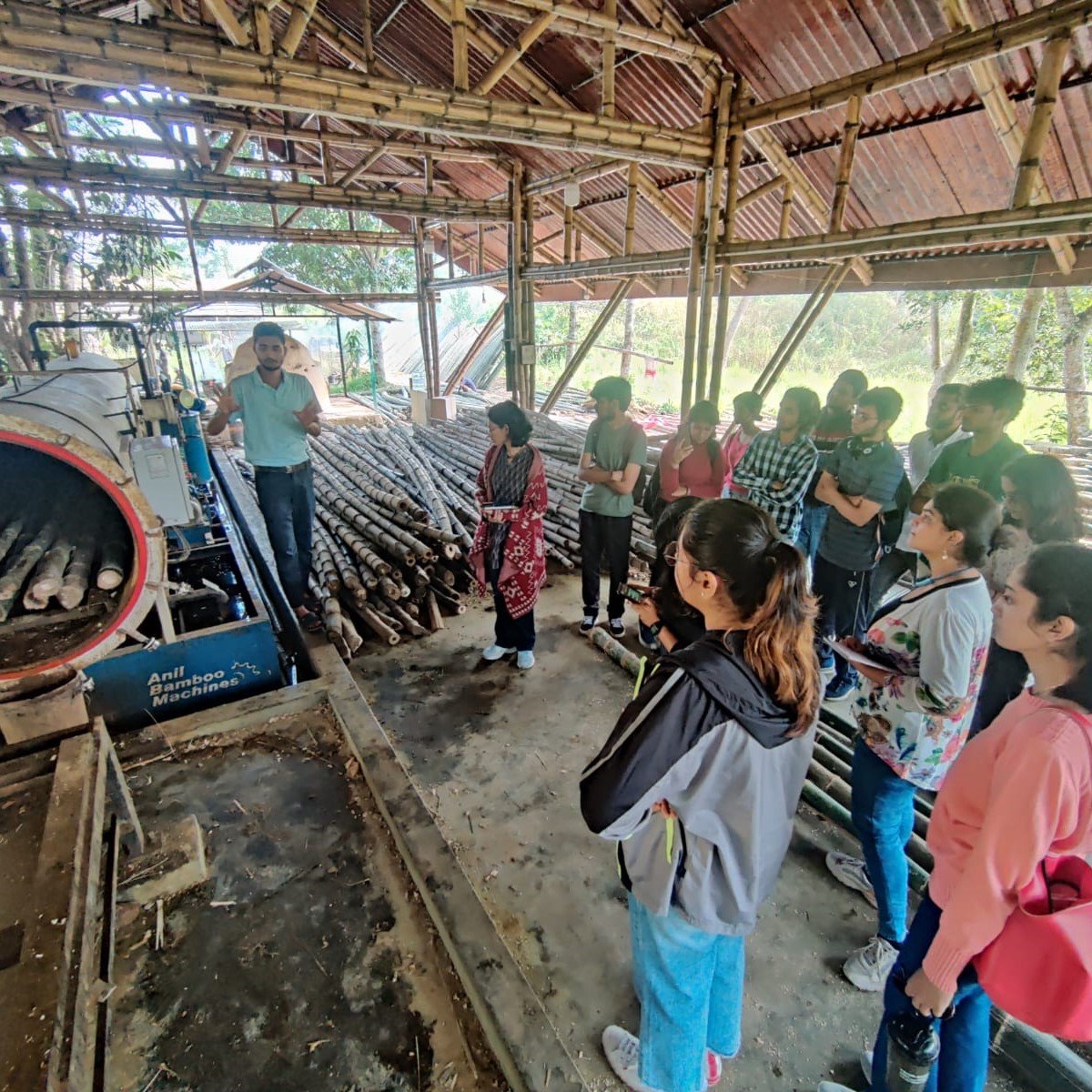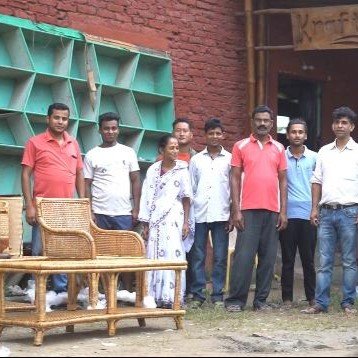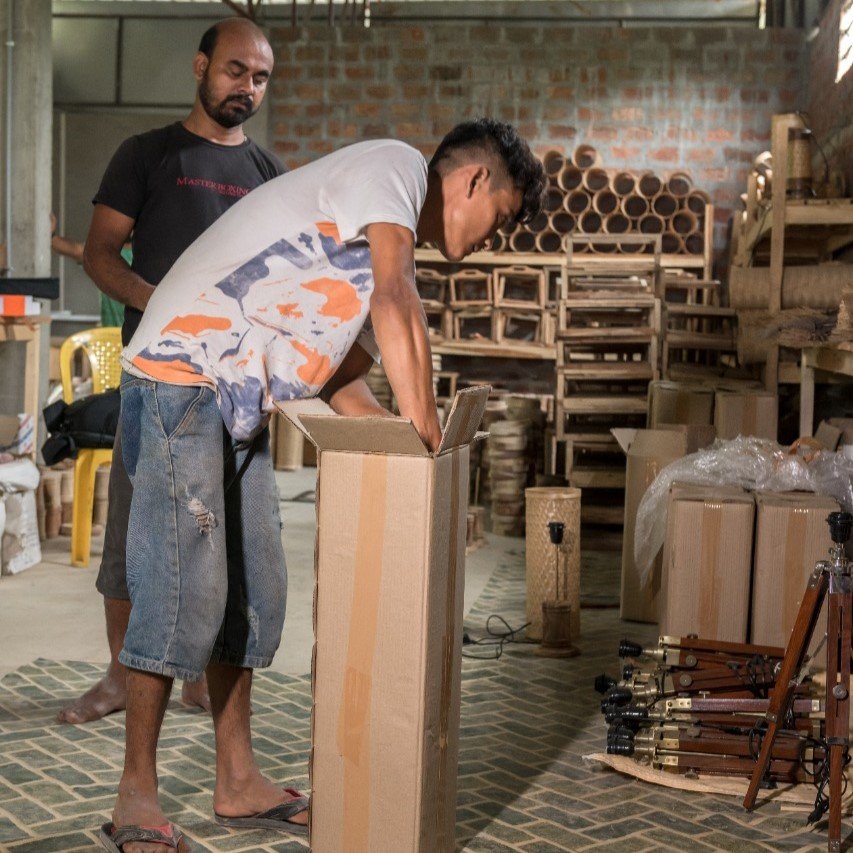In 2015, Parikshit Borkotoky left his corporate career in financial services and moved back to the rural Assam community of Jorhat to start KraftInn along with his brother, Pramathesh Borkotoky. Their goal was to create jobs for semi-skilled artisans in his hometown.
KraftInn Home Decor is a D2C home decor brand that addresses the issue of sustainability for conscious customers by selling products made with bamboo, water hyacinth, and other natural fibers sourced locally from Assam.
We spoke to Parikshit to know more about his journey aimed at improving the livelihoods of artisans with KraftInn and how he is living a life with no regrets. Read more of our conversation with him below!
Q. What motivated you to start this business?
We were both born in Jorhat (Assam) and raised in Shillong (Meghalaya)—two beautiful places in North-east India. As we grew up amidst nature, we always had an inclination to do something that would not harm the environment.
The region's craft and handlooms have a lot of potential but aren’t completely explored yet. My friends in Delhi used to ask for products made from unique materials like muga silk, ahimsa silk, bamboo, cane, and water hyacinth, which are only available in Assam. That’s when we realized the untapped potential in this unorganized sector and were motivated to start KraftInn as a business.
KraftInn is a wordplay—where craft symbolizes our desire to design and create unique products that harness the skills of the artisans who have evolved over generations and inn signifies our marketplace where people can experience our local culture and take back tangible artifacts from the North-east.
Q. What did you do before starting Kraftinn? What made you pivot?
After completing my MBA from Amity Business School, Noida, I worked with MNCs such as American Express, ABN AMRO Bank, and Religare Securities. I also went on to lead the BFSI domain at a startup called AccelTree Software and my experience there was incredible. The sense of ownership and responsibility I had at the firm drove me to work incredibly hard and enter a territory that was scary and unknown. This inspired me to start something of my own. Hence, along with a few of my friends and colleagues, I founded ROPeS Consulting in Delhi but we weren’t able to match the competition and failed in our attempt.
That’s when I realized that building a company not only requires a good understanding of the area in which it operates but also the importance of building core competency. Soon after that, I returned to Assam to research and explore different villages and artisan clusters to see what can be done. I was keen on working with muga and ahimsa silk, but since this industry is capital-intensive and season-dependent, we started working with bamboo initially and planned to extend to cane, water hyacinth, jute, ahimsa, and muga one after the other.
Q. Why did you decide to formulate a business model with such a strong emphasis on social impact?
Initially, our plan was to be an aggregator and push the products in the market. However, just reselling these items proved to be unsustainable for us, as it did not add any value to the product or create any significant impact. Hence, we decided to select a few artisans from the clusters and create our own team who would make new and unique products.
Although we offered to cover wages for our team of artisans, we soon realized that that wasn’t enough. Our artisans faced many other personal challenges with this kind of work that needed to be addressed.
At KraftInn, we believe that the creator’s quality of life is reflected in the quality of the products they create. We wanted to improve the lives of our artisans so we created job security by introducing stable income, direct bank transfer, predictable payment cycles, and fixed work timings. That’s how we ended up creating a business model with a primary focus on social impact.
Q. What is your vision for Kraftinn?
Our organization's core philosophy is centered around creating sustainable and biodegradable products. We aim to become India's leading sustainable home decor company by focusing on the three pillars of sustainability—people, planet, and profit.
Currently, many artisans in the North-east region of India are leaving their craft due to low perceived value, and we aim to change this by utilizing their skills to create high-quality and biodegradable products that not only encourage them to remain in the industry with an increased income but also don’t harm the environment.
Additionally, we aim to create a profit-oriented business model that can make a tangible impact. Ultimately, our goal is to create self-dependent artisan clusters and villages that can contribute to India's economy.
Q. What has been your biggest personal take-away in your entrepreneurial journey so far?
After leaving the North-east for higher education and various jobs, I felt aimless. However, starting something purposeful upon returning has changed me. My goals, perspective, and preferences have evolved. I am now clear about my path, how to involve the community, and live a purpose-driven life without regrets. This journey has completely transformed me.
Q. What are some of the key insights you’ve gained after working in this sector? Were there any ‘Aha!’ or ‘Oh no!’ moments?
The handicraft industry faces two challenges. Firstly, there is a demand for "earthy" looking products, but mechanization would compromise the exclusivity of handicraft. Secondly, the perceived value of sustainable products is either very low or very high. This is because there are more aggregators in the market than manufacturers.
At KraftInn, we appreciate handicraft as an exclusive work of art, rather than a charity case. But to scale the industry, a middle ground needs to be established in pricing so that mass consumers can adopt the product without impacting their daily pockets. Our ‘Aha’ moment was realizing that we need to find a way to scale up without compromising on the exclusivity of our products.
Q. What is a piece of advice you’d like to give to other aspiring entrepreneurs?
To succeed, an entrepreneur must possess passion, patience, and perseverance. These three qualities are crucial for the due course of time and growth of your company.
Upaya’s Dignified Jobs Accelerator, in partnership with Yunus Social Business, focuses on building investment-readiness capacity for early-stage social businesses that create livelihood opportunities in an inclusive and equitable manner for those in extreme poverty. You can learn more about the accelerator here!
Every year the applications for the cohort open by the first week of September. Follow us on LinkedIn for more updates on the program.
















The Tribal Hermit is a social impact venture that works closely with 130+ Dhokra craft artisans from Kondagaon, Bastar, and Raigarh districts of Chhattisgarh to design, create, and sell their products.